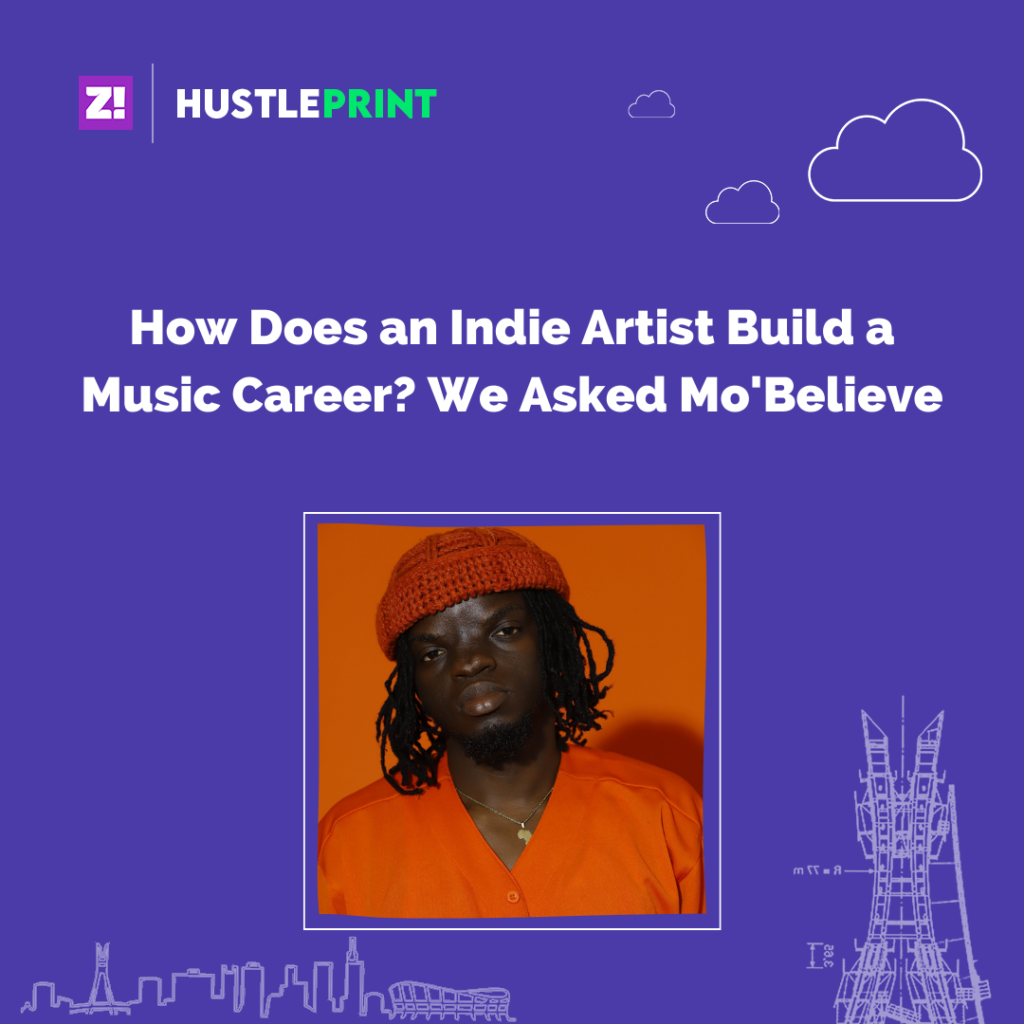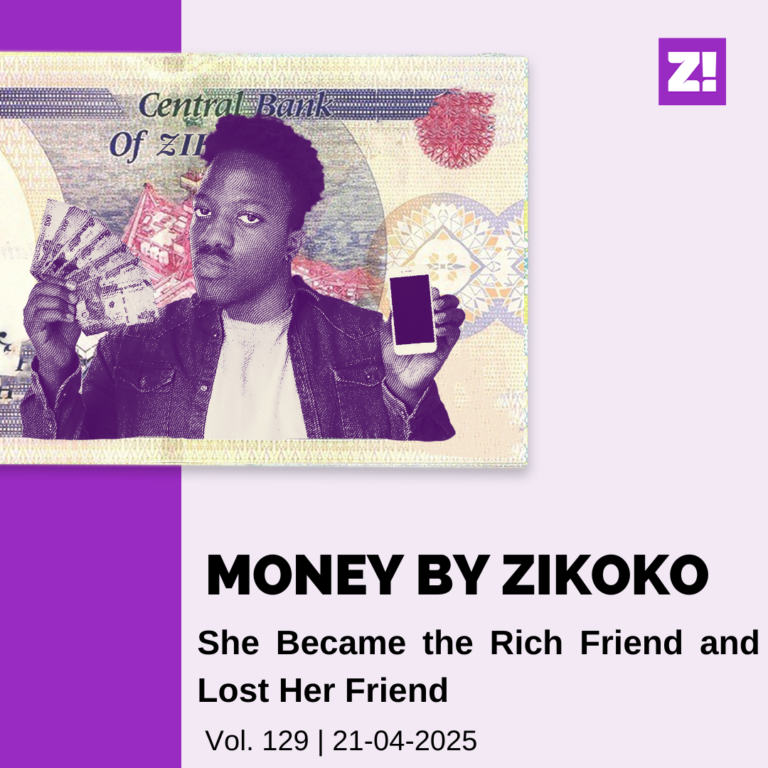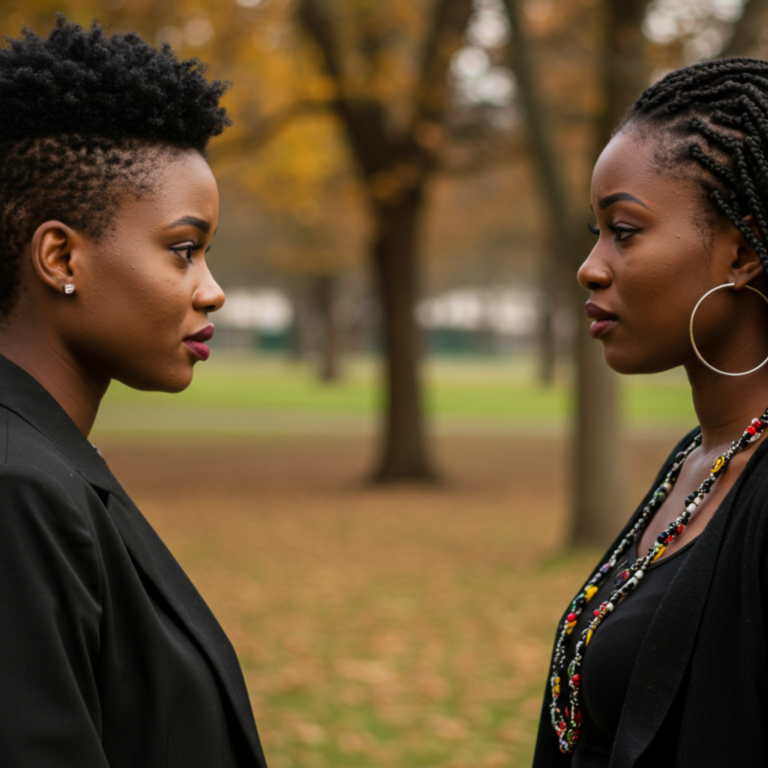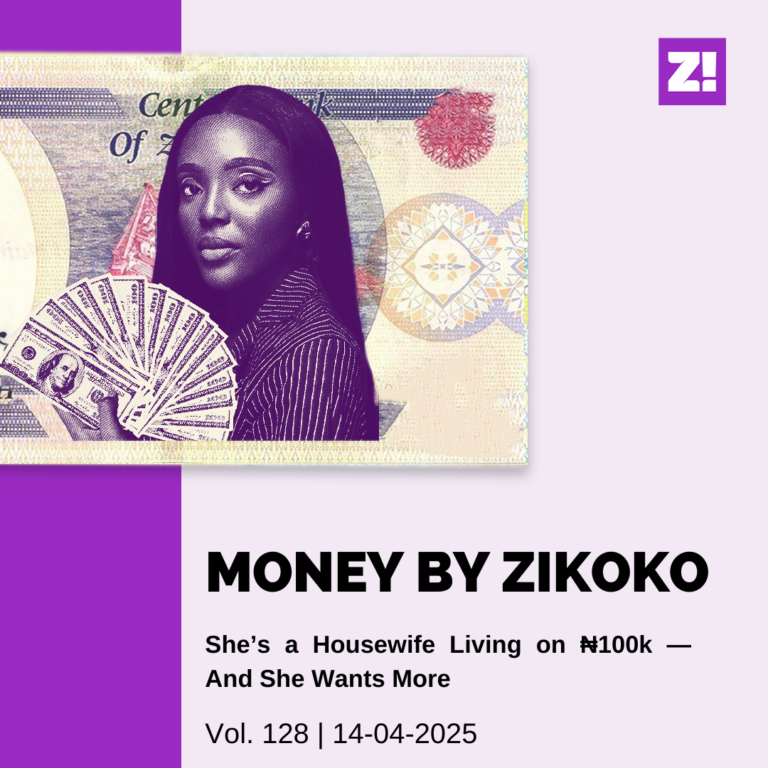Every two weeks, Zikoko will share the hustle stories of Nigerians making it big in and out of the country. With each story, we’ll ask one crucial question in several ways: “How you do am?”

Let’s start easy. What do you imagine led you down this path?
I’ve always wanted to work in the entertainment industry. One minute, I was a 12-year-old kid watching Kennis Music’s Primetime Africa show on TV; the next I was rapping in secondary school. I rapped because that’s what the cool kids did.
A few years later, I was now in the university. For a short period, the plan was to manage an artist I met.
But you’re not an artist manager now, are you?
I’m not. In my third year in uni, I started putting out my rhymes, and people liked them. However, I didn’t pay much attention to the hype. In my final year, I wrote a school project for someone, but I didn’t get paid in cash.
Oh?
He introduced me to a studio and an artist — who is very big now — as payment for the work I did for him. We wrote and recorded a song together, and I liked the results. I was thinking, “Maybe I should do music.”
But it wasn’t a burning passion.
When did this change?
I’m poor with dates, so I can’t put a particular timeline to it. But the conviction to chase a music career to the deep ends became stronger after putting out my first body of work in 2017.
Sounds huge. How did you pull that off?
It happened in stages. The first, most significant realisation was that I’m a stronger singer than rapper, and this only happened because the people around me made see that.
Music is made up of two important parts: songwriting and production. I could write songs, but I couldn’t produce them by myself. So the first person I needed on my team was a producer, and a friend introduced me to Olumba.
The original plan was to make one song and see what it sounded like. It turned out that Olumba and I had so much creative synergy that we just kept going. And that’s how I figured out my sound, which I call Urban Folklore. The core of it is the storytelling.
I’ll say that those early collaborations with Olumba helped me discover my sound. He was like, “You sound better when you sing in Yoruba. You should do more of it.”
And a star was born
Haha. After recording a bunch of songs, we had an idea to make a project about Lagos, telling the stories we forget to remember about the city because we’re too caught up in the hustle. We made as many songs as we could to tell these stories — I don’t remember how many there were — but we streamlined them into the eight that made the album. We called the project Ariwo Eko.
This was in the Soundcloud era, so we didn’t need a robust distribution plan. There wasn’t a strategy to make money either — it was about getting my voice and Olumba’s production heard.
What was your idea of success at the time?
I wanted to make something my friends would listen to and play for other people. This happened on a much bigger scale than I expected, so I was good. Outside of my circle, the reception to the release was also mind-blowing. I got tons of opportunities that I didn’t even think about.
Tell me about some of them
Remember I said that there wasn’t a clear path to monetisation when I put out the album? But a few months after it went out, my work had made enough rounds that I started getting invited to perform at shows. At least 95% of my early income came from the shows I performed. They were small, intimate shows — an office hangout here, a book reading there — but they paid enough to cover basic needs. Also, it was reassuring because it proved that I was onto something.
While I performed at a few big shows too, I didn’t get paid for them. I did them for promotion and visibility.
The conviction was strong now.
In your opinion, what’s the first thing anyone needs to know about being an indie artist?
First — and I can’t talk about this enough— know for a fact that you want to do it. Music is a jealous profession and takes pretty much all your resources. It demands everything, so you need to ask and answer an important question: do you want to do it or not?
Also, advice a friend gave me a few years ago changed my perspective on how to navigate this life and make the best use of resources. They said, “You don’t make a masterpiece out of a masterpiece, you make a masterpiece from the pieces you’re surrounded by.”
In practice, this means that you can always get quality output, even with limited resources. The trick is being humble enough to find somebody as hungry as you that’d do something for you at a price you can afford. If you’re waiting for ₦7m to shoot a video, you might be wasting your time. As ridiculous as it sounds, you’ll find someone that’ll do it for ₦70k.
Ah, I see.
It’s also about finding smart ways to figure out how to put yourself and your work out there. Even if I spend ₦7m on a music video, there’s no guarantee that I’ll get half the airplay the biggest artists in Nigeria will get. But I can always put short clips on Instagram to increase my reach and grow the community of people that listen to my music.
It’s also about asking your people for help. If you can’t afford to shoot a video with models, you can try putting your friends in it. In my experience, you’d be shocked at the lengths people will go for you.
A lot of the things I’ve done in the past few years have been tied to how well I could get the people I know to help. This was how I built my team— most of them were people I already knew and had relationships with.
Fair enough. Is there a moment you consider your first significant milestone?
In 2018, I uploaded a short video a friend had recorded while I was rehearsing for a show. Guess who saw it and reached out?
Who?
Mr. Eazi. The next thing I know, I got into the emPawa program. The deal was to send them a song, and the company would pay for its video and marketing. For an up-and-coming act that couldn’t afford the quality of video and promotion, I got with the program, this was a big deal and blessing.
Love it. How did you decide what song to promote though?
I chose the song that people liked the most on my first album. I figured if more people found this song and liked it, they’d have a reason to listen to the whole album.
Smart. What happened after?
When you have a foot in the door, the next thing to focus on is increasing your reach. It never stops.
In what specific ways did you increase your reach?
Live performances are my strongest suit, so I was intentional about getting as many shows as I could; paid and unpaid. If you offered me ₦50 to come and sing for you, I’d do it.
I also leaned heavily into social media, putting out as much content as I could. It was about building a community of people who love my music, and it was proven that I could find new fans on social media.
It seems like you had to do it yourself. Did you ever consider going the label route?
This might be a flaw, but I’m very big on DIY. I mean, at some point, the plan was to build my talent to an undeniable level so the labels would come knocking. But now, my energy is going towards winging it. In my case, it means preaching to my little community and going to spaces I’ll find people that’ll like my music.
I like to think I’m not doing badly at it. I’ve got two albums out of this model.
Lit. Tell me about the second album.
It’s called Odu, and it came out in 2022. I decided that I could use some help in getting the best out of this body of work without necessarily being signed to a record label, so I looked out for distribution and licensing deals.
After finishing the album, I prepared a deck and sent it out to record labels, licensing houses and distribution companies. I got several offers and streamlined my options to the one I think was the best for me.
What did you look out for?
Creative control was the most important. Then the revenue-sharing plans and the willingness of the other party to push the project.
By the way, I got a licensing deal with emPawa.
How does this work?
I’m leasing the company the rights to my music for a few years. During this period, we split whatever revenue the record makes. Once the licensing period is over, the rights return to me. Essentially, I’m giving them a product, and their job is to unlock as many opportunities as they can with it.
I have the talent and they have the resources to push it and get the best out of it in a way I can’t at the moment. While all the money won’t be mine, it still works. At the end of the day, 100% of ₦100 is ₦100. But ₦10% of ₦1m is ₦100k. This is a useful framework to think about things like this.
I’m wondering how you made the deal happen
To be honest, the existing relationship I had with the company helped push things forward. But if I learned anything from the process, it’s that no one is doing you a favour. It’s a business, and everyone is trying to make money.
I hear you. Apart from the business side of things, how do you stay true to your sound in the middle of changing audience preferences and trends?
Every artist considers the consumer when making a song. But I have a principle not to lose elements of myself or my music to chase a hit song. To keep me grounded, I try to make the kind of music that I’ll like to listen to. No compromises here.
That said, I think about patterns and trends, too. And I’ve dabbled in more mainstream music as well. But for the most part, I tell the stories that are true to me, even if I combine them with elements of other genres.
You’ve spent a few years in the game now, what do you imagine will happen next?
In the short term, the focus is on growth, and I understand that the foolproof way to unlock this is by being consistent. Then I can increase my audience and really blow.
I don’t think I’ve touched the kind of money I should be making yet, so there’s much to look forward to. The goal is to build a sustainable career as an entertainer.
I don’t have all the answers. But I know what’s got me here: it’s doing what I need to do to get better and learning as I go. I don’t think this ever fails.
Hustleprint stories drop every two weeks on Wednesdays at 12 p.m. WAT, and Hustleprint guides will drop in the interim weeks.
So you can follow each drop, Hustleprint will be published in our money newsletter.




